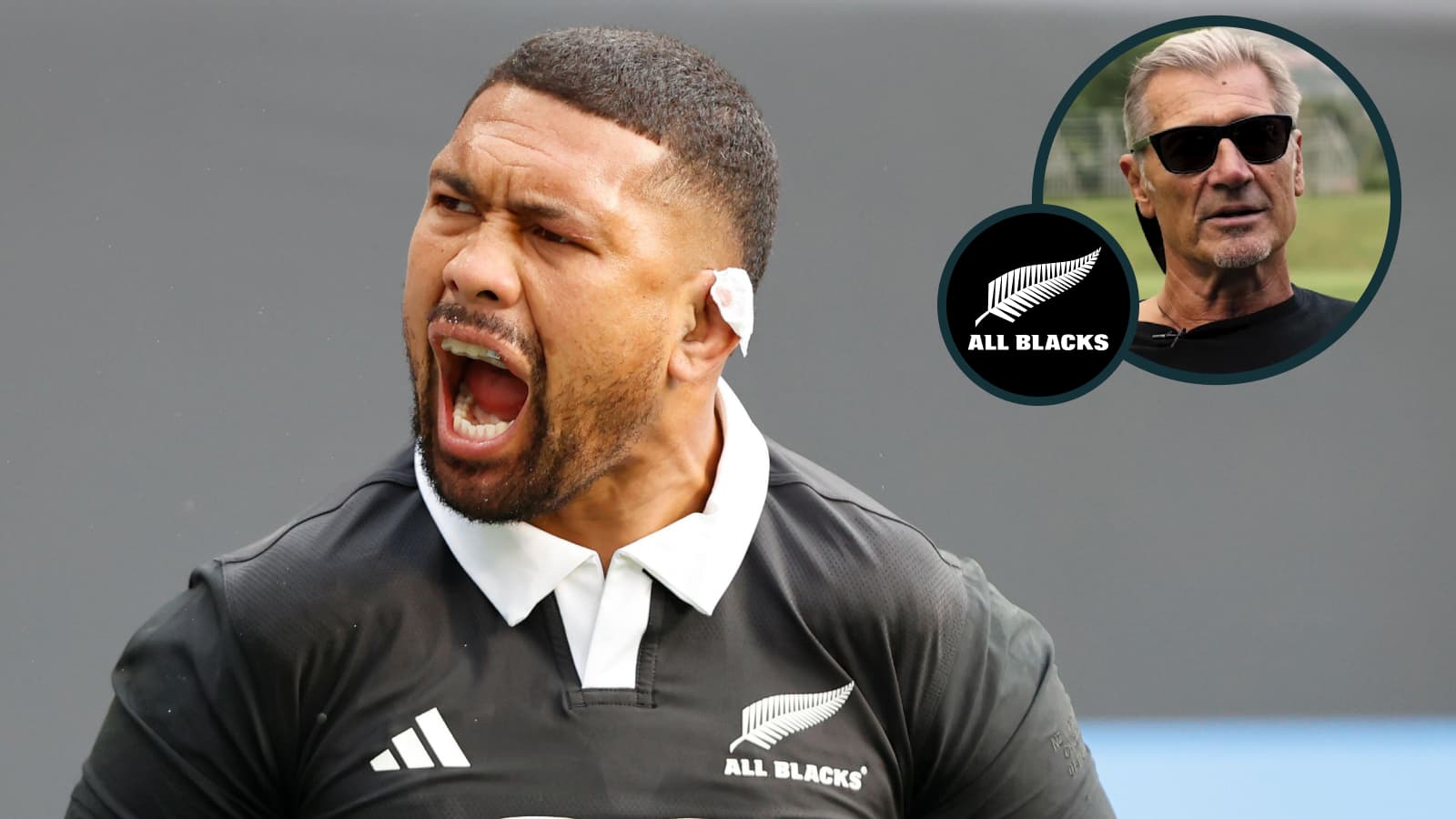Former All Blacks forward Murray Mexted is pleased that Scott Robertson’s men emerged victorious over Ireland in Chicago despite several setbacks.
The 72-year-old admits that he was ‘nervous’ at half-time when Ireland held a three-point advantage over New Zealand as he feared that the game wasn’t going to open up.
He rued the stop-start nature of the encounter, describing referee Pierre Brousset as ‘fickle’ in his handling of the fixture, which meant that the match was not ‘world-class’.
Not a world-class match
However, he was happy that it did eventually open up with the All Blacks‘ scoring tries through Tamaiti Williams, Cameron Roigard and Wallace Sititi to seal a 26-13 victory.
“It was a very difficult game to rate any team fairly because there was a lot of interference in that game; you’d have to look at the adjudication more than anything else. It was stop-start throughout the whole thing, which was a shame really, because it’s a promo for the game in Chicago,” Mexted told the DSPN podcast with Martin Devlin.
“I went to that match in 2016, just as a spectator, and I had a bloody good time too, actually, it’s a great city, but the thing that I heard during the day from Americans was that it was a fantastic idea and opportunity for them to see a game of world-class rugby. And I thought the game that we’ve just watched wasn’t a world-class game of rugby because there was too much interference.
“I was nervous as hell by half-time because I didn’t know whether the game would open up, and if the game opened up, I always had a sense that we might have the ability to score more tries than the Irish.
“In the end, we scored four tries to one, so it was pretty comprehensive, but the adjudication was over the top. Referees have got to take control of the game, if there are people on the outside poking their nose into it and he’s there and he’s seen the action, he’s got to he’s got to make a ruling on his judgment.”
He added: “There were lots of things at the start of what they’re calling a Grand Slam tour; it was important that it was a good game.
“Now, I don’t think it was a great game of rugby if you didn’t understand the rules. If you understand the rules, you could see it was tense and intense – there’s no doubt about it.
“In fact, I was in a room of people who were getting frustrated by half-time, and everybody said that if the game carried on like that in the second half, it’s anyone’s game – either team could win because there wasn’t continuity like there normally is in the game of rugby. I think that’s how you have to judge referees.”
Positives for the All Blacks
Zoning in on the positives from the men in black, Mexted pointed out that New Zealand managed to get the win despite the numerous setbacks that they suffered.
Scott Barrett was forced off the pitch injured early on in the match, which meant that the side was not only without their captain but also their lineout caller. Vice-captain and brother Jordie Barrett followed him to the sidelines shortly afterwards with an injury of his own.
“We were under enormous pressure because we lost our captain Scott Barrett, who calls the lineouts after two minutes, and his brother nine minutes later,” the former forward said.
“You lose your captaincy, your leadership, your lineout caller, your combination between the 10 and 12 who have been playing all their life together and all of a sudden you’ve got a new midfield back combination.
“There were a whole bunch of things that happened in that game that sort of made me feel nervous, but in the end, you’d have to say four tries to one was about the difference between the two teams. So, it all goes well for the future if we select the right players and if everybody is available for selection. But anyway, it was a great victory in the end and onwards and upwards.”
All Blacks’ win over Ireland proves costly as key duo injury doubts ahead of Scotland clash
Northern hemisphere ‘education’
Still, Mexted felt that the All Blacks coaches and players would have taken a lot of learnings away from the match, particularly in how northern hemisphere referees, particularly French officials, handle matches.
Additionally, in how to eke out a win despite so many things going against them, reserving particular praise for young locks Fabian Holland and Josh Lord.
“It’s the education of the players and the coaches. So, we have got a lot of new players that don’t realise that when you get to the northern hemisphere and you’ve got referees like the French, and let’s face facts, French referees can be fickle at times… all referees can be fickle at times, but French referees, out of their own comfort zone, he looked nervous to me,” he said.
“He was blowing his whistle a lot, and he was only too happy to hear a third party say ‘This is what went wrong,’ and then he had to make a ruling.”
Adding: “We learnt a lot, and some of the players learnt a lot. You’d have to say that we were quite calm under pressure in the second half, which I thought was a credit to the team because there were so many new players and new positions, and I thought they were disciplined, and it was really pleasing to see.
“We didn’t have rhythm and flow until the last 10 minutes, but we were behind for three quarters of the match. In the end, four tries to one, we walk away and say, ‘Well, that’s actually about the way it should have been. So, you can’t complain much.’”
READ MORE: All Blacks great slams Tadhg Beirne’s ‘absolute joke’ red card and issues warning to World Rugby

